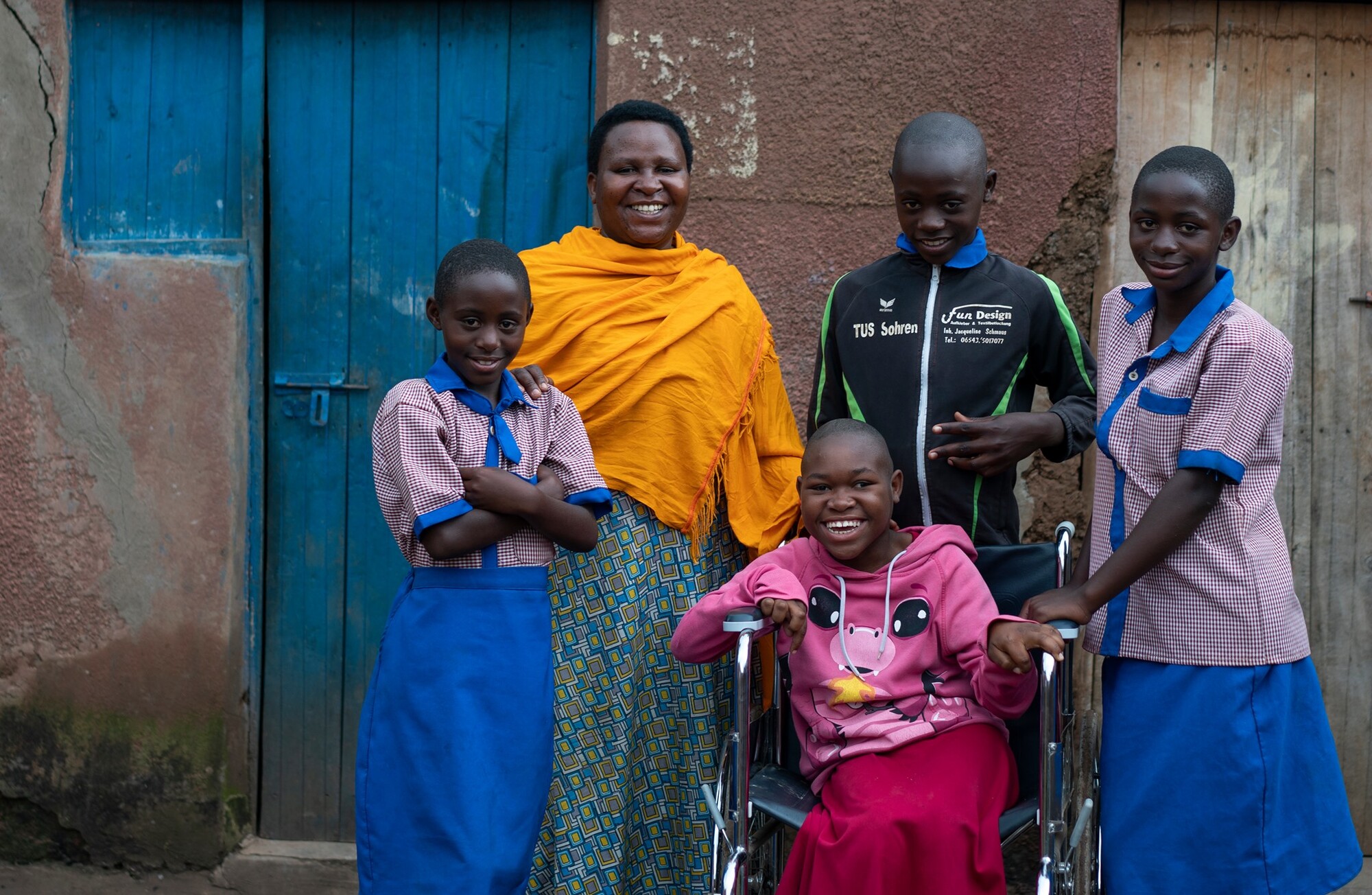Cary’s courageous journey home from the orphanage.
Cary’s mum, Patricia, was young and alone when Cary was born. Although Patricia’s parents helped to care for Cary when she was small, with no access to specialist family support, they found it impossible to meet their granddaughter’s additional needs alone.
When Cary was just five years old, her family heard about an orphanage for children with disabilities in another part of Rwanda. They made the heartbreaking decision to admit Cary to the institution, knowing it was too far to visit but hoping Cary would receive the extra support she needed there. Instead, she spent the next nine years, neglected and alone, with only a handful of untrained staff to care for her and all the other children with complex needs who lived there.
At first, Cary was allowed to go to the local school. She is very curious and loves to learn but when the teachers realised that, even as she grew older, she would still need assistance to visit the toilet, they told her she could no longer attend.
“No one cares for me here,” Cary confided when our specialist team in Rwanda began work to close the orphanage. She was so desperate to leave, she even went on hunger strike. “I want to be at home and be part of a family,” she demanded.
Finding Cary’s family
Our team’s first priority was to make contact with Cary’s family and see if, with the right support, they would be able to welcome her home again.
They managed to trace Cary’s mum, Patricia, and established that her life today is far more secure than before. Patricia is married now, with three children. She has also trained as a tailor so that she can earn money to support her family.
Taking time and great care, our skilled social workers and psychiatrists, helped Cary and her family prepare for the life-changing day when she could return home. This included connecting Cary with the local health centre to make sure she receives the medicines she needs on daily basis, and also installing an accessible toilet in their home.
Home at last
In March 2019, Cary’s wish came true at last when she was reunited with her family. With her mum and stepdad and her brother and sisters to love and protect her, our team in Rwanda confirm that Cary is much happier now.
“Back in the orphanage, I used to cry so often, if I can describe it in one word it was sadness. But now, even though I can get into fights with my siblings, I am happy and content. Home is a good place where children get support from their parents. In my case I get support from my mother, and I learn family values.”
Cary, now safe at home with her family
Her siblings are happy too. “We knew we had a sister, but we didn’t know who she was. Now we know her!”, Cary’s brother told them.
“There is a massive change when you compare Cary today and when she was in the institution”, explains Child Psychologist, Richard Munyaneza, a member of our social work team in Rwanda. “Back in the institution, even when she smiled you would see a deep sorrow and she was always asking for her mother to come and take her home. Now she looks much happier. She used to express a lot of anger but now she shares joy via jokes and humour. She has already formed a strong bond with her younger siblings but especially with her mother. Simply, she is happier than before.”
We will continue to monitor Cary’s progress, to make sure that she stays safe, happy and well. And our next priority is to secure a place for Cary in her local school, to ensure that she can continue to flourish and learn, alongside all the other children in her community.
Support our work Help end orphanages for good.
Help children like Cary stay at home with families who love them
